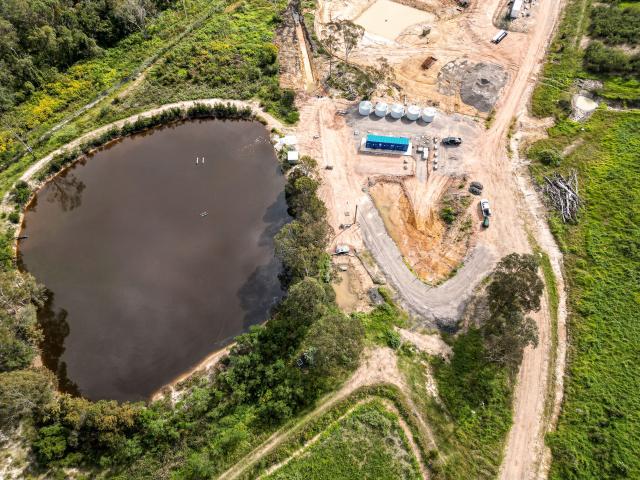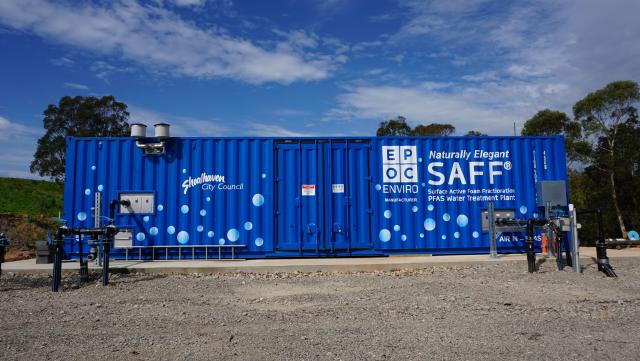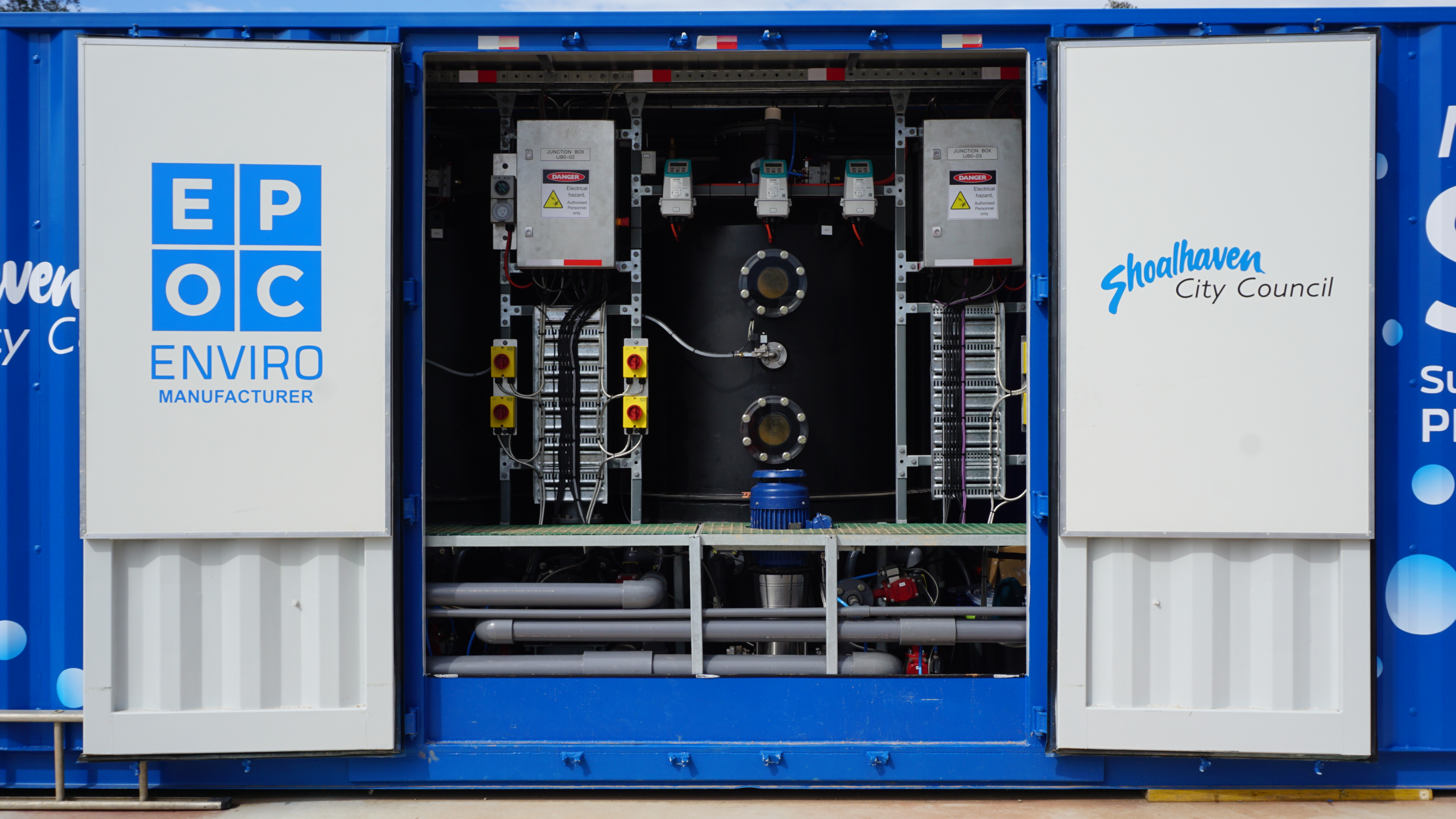After achieving significant global success, EPOC Enviro’s containerised SAFF® (Surface Active Foam Fractionation) PFAS remediation technology has now been installed for the first time in Australia by Shoalhaven City Council.
The SAFF technology commenced remediation of target PFAS contaminants from landfill leachate waters at the West Nowra Recycling and Waste facility in March 2023 and forms the cornerstone of Shoalhaven’s suite of innovative recycling and circular economy programs at the site.
The technology is treating between 200-240m3 of leachate per day and is achieving removal to the LOR for Australian regulatory target PFAS contaminants PFOS, PFOA and PFHxS, as well as PFHpA.
“We couldn’t be more pleased to have our latest SAFF® technology make its Australian debut with Shoalhaven City Council,” said EPOC Enviro Managing Director, Pete Murphy.
“Our Australian made SAFF® technology has successfully remediated PFAS from more than twenty-four locations in Europe, the UK and the USA, with the market just starting to move in Australia. We are immensely proud to have our technology positioned at the heart of one of Australia’s premier recycling facilities and we’re confident other utilities out there will follow Shoalhaven’s lead.”
SAFF was conceived by EPOC Enviro after years of R&D as a sustainably engineered solution to permanently remove PFAS contaminants from the environment. The technology uses the air/water interface of rising air bubbles to rapidly remove PFAS contaminants from water. Separated PFAS molecules are then concentrated, creating a compact PFAS concentrate ready for destruction.
At the site, the SAFF works to permanently remove target PFAS contaminants from water that’s been pumped from the landfill leachate pond. The water will then be put through a secondary treatment and used to wash glass at the council’s glass processing plant, before returning to the pond for continuous remediation.
Glass from the plant is used in a variety of applications including road base materials, asphalt, concrete, pipe bedding, drainage material, sand blasting and green ceramics.
When asked if he is satisfied with the way the SAFF is performing and if he’s made the right decision, Shoalhaven City Council’s Waste Operations Coordinator Peter Windley is quick to answer – “100 per cent”.
“With any new technology there’s an element of risk, but we did our homework, we looked at what’s out there in the marketplace and we identified the benefits of the SAFF system over others. While we’re only a short while into this project, we’re already amazed at the output,” Peter Windley said.
There is growing recognition that landfill sites around the world are primary sources of PFAS contamination as they represent the final resting place for PFAS-containing products. These products typically have waterproof, non-stick and stain resistant properties, such as packaging, mattresses, carpets and furniture.
SAFF can effectively manage the highly polluted landfill leachate environment, including waters with complex co-contaminants and suspended solids, as well as metals and high TOC and DOC. It can also remove other surface-active chemistries including some pharmaceuticals, surfactants and industrial contaminants.
Robust SAFF uses no consumables and produces only PFAS hyper-concentrate as a waste stream. It is housed in a shipping container for plug and play commissioning, requires minimal power to effectively operate, and is capable of autonomous operation, achieving significant cost savings.
The first commercial prototype of Surface-Active Foam Fractionation technology was installed at Army Aviation Centre, Oakey in 2019, and this plant continues its excellent work, having remediated over 140M litres of water. The containerised form of the technology which is now hard at work in Shoalhaven was first used to successfully remove PFAS from landfill leachate in Sweden in 2021.
Other recycling initiatives in play at Shoalhaven include enhanced recycling of kerbside collections, landfill gas upgrades and solar generation to create a zero footprint, exploration of circular economy solutions for plastics and textiles and the production of ceramic tiles from waste products.
“We applaud Shoalhaven for their commitment to sustainability, development of cutting-edge technologies and circular economy solutions. One of their goals is to recycle the contents of red and yellow kerbside bins to achieve above 90 per cent landfill diversion by the end of this year, and this is something that we should all get behind,” Pete Murphy said.



















